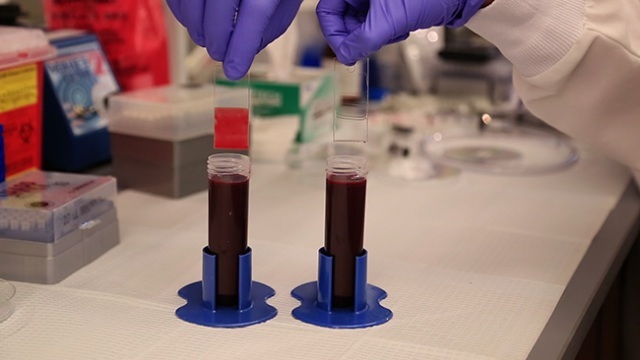
Image Credit: Harvard’s Wyss Institute
This new solution has the potential to address bacterial infection and blood clotting, which are the two major problems currently faced by medical devices.
The new coating solution not only delayed the formation of biofilms but was also repellent to blood on over 20 medically relevant substrates made of metal and glass.
The researchers also tested the coating material by applying it to medical-grade tubing and catheters to be implanted in large blood vessels of pigs. The use of the coating material prevented blood clotting for eight hours and hence there was no need for blood thinners such as heparin.
The research team took inspiration from Slippery Liquid-Infused Porous Surfaces or SLIPs, a breakthrough surface technology created by one of the researchers, Joanna Aizenberg.
The application of SLIPS imparts repellency to any material. The presence of a liquid layer on SLIPS serves as a barrier to any substance such as blood, crude oil or ice.
In this study, the scientists took advantage of the inherent roughness of a medical device’s chemically modified surface. They created a super-repellent coating capable of adhering to prevailing medical devices.
The two-step surface-coating process involves chemically bonding a perfluorocarbon monolayer, followed by the addition of a liquid perfluorocarbon layer that is broadly used in medicine for applications such as eye surgery, blood substitution and liquid ventilation for new-born babies with breathing difficulties.
The researchers named this combination a Tethered-Liquid Perfluorocarbon surface or TLP.
During testing, a TLP-coated surface also outperformed a gecko in terms of adhesive strength. So far, the researchers have only tested the coating material on medical implants such as perfusion tubing and catheters which use relatively simple configurations.
The team at Harvard aim to test the coating material on more intricate systems such as ECMO and dialysis machines. The Nature Biotechnology journal has reported the study results.